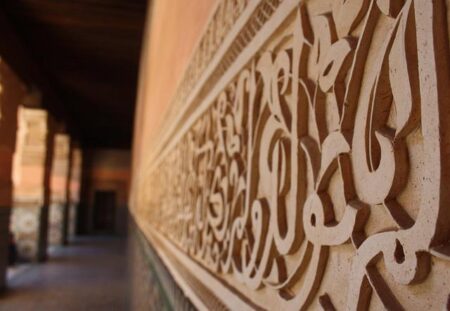Ethiopia Strengthens Border Defenses Amid Heightened Horn of Africa Tensions
In a notable intensification of regional friction, Ethiopia has reportedly stationed heavy military equipment along its northeastern frontier with Eritrea. This strategic deployment underscores growing apprehensions about the resurgence of conflict in an area still recovering from decades-old hostilities. The move reflects Ethiopia’s intent to reinforce its defensive posture amid lingering mistrust and unresolved disputes that have historically destabilized the Horn of Africa.
As global observers remain attentive to these developments, this military escalation could significantly influence geopolitical dynamics across East Africa, potentially affecting millions who live in this volatile corridor.
Military Enhancements and Strategic Objectives
Ethiopia’s recent reinforcement includes the mobilization of artillery units, armored personnel carriers, and sophisticated missile defense systems designed to enhance both offensive reach and protective capabilities. Officials emphasize that these measures are vital for safeguarding national sovereignty against perceived external threats.
| Deployed Military Assets | Strategic Purpose |
|---|---|
| Long-range Artillery Batteries | Extend strike range for border defense operations. |
| Armored Combat Vehicles | Improve troop mobility while providing enhanced protection. |
| Advanced Surface-to-Air Missile Systems | Deter aerial incursions and strengthen airspace security. |
This buildup is interpreted by analysts as a dual-purpose strategy: bolstering readiness for potential conflict while signaling resolve to both regional competitors and international stakeholders regarding Ethiopia’s commitment to defending its territorial integrity.
Key Drivers Behind Ethiopia’s Military Escalation
- Tense Geopolitical Rivalries: Ongoing disputes over border demarcations and competition over natural resources continue to fuel animosity between Ethiopia, Eritrea, and neighboring states.
- The Quest for Internal Stability: Concerns about ethnic divisions within Ethiopia heighten fears that external provocations could exacerbate domestic unrest or fragmentation risks.
- The Influence of Global Powers: International actors’ involvement in Horn of Africa affairs complicates local dynamics, prompting recalibrated defense postures by Ethiopian leadership.
Potential Consequences for Ethiopian-Eritrean Relations
The introduction of heavy weaponry near the Eritrean border raises alarms about escalating tensions that may spiral into renewed armed confrontations. This assertive stance can be perceived by Asmara as provocative-potentially triggering reciprocal military preparations or diplomatic backlash. Experts warn that misinterpretations or accidental engagements could ignite clashes reminiscent of past conflicts which devastated communities on both sides during their war two decades ago.
This situation transcends mere battlefield considerations; it embodies a broader contest over influence within the Horn region where power balances remain fragile. The ripple effects may extend beyond bilateral relations-impacting neighboring countries’ security calculations as well as humanitarian conditions along contested zones where civilians often bear disproportionate burdens during escalations.
- Dynamics Among Regional Powers: Neighboring states closely monitor how shifting threat perceptions might alter alliances or provoke proxy tensions across borders.
- The Role Of External Support Networks: Both nations may seek backing from allied countries or blocs which could further complicate peace prospects.
- Civilian Impact And Humanitarian Risks: Heightened militarization threatens displacement risks among vulnerable populations residing near flashpoints.
Pathways to Peace: Diplomatic Solutions & Confidence-Building Measures
Averting further deterioration requires urgent prioritization of diplomatic engagement facilitated by neutral third parties such as the African Union (AU) or United Nations (UN). Establishing consistent communication channels can help de-escalate misunderstandings through transparent dialogue focused on shared concerns like border management protocols and resource sharing agreements.
Â
Regular bilateral meetings supported by impartial mediators would foster trust-building essential for long-term stability. Additionally, joint economic initiatives-such as cross-border trade facilitation programs modeled after successful East African Community projects-could incentivize cooperation rather than confrontation.
Â
Confidence-building steps should include mutual commitments toward reducing troop concentrations near disputed areas alongside transparent reporting mechanisms concerning military activities. These measures not only lower immediate tensions but also lay groundwork for sustainable peace frameworks benefiting all parties involved.
Conclusion: A Critical Juncture in Horn of Africa Stability
The recent surge in Ethiopian military deployments along its frontier with Eritrea marks a pivotal moment fraught with risk yet ripe with opportunity if managed prudently through diplomacy. Both governments face pressing choices-to escalate toward conflict or engage constructively toward reconciliation.
The international community remains vigilant given how developments here resonate far beyond local borders-affecting regional security architectures throughout East Africa.
Ongoing monitoring coupled with proactive mediation efforts will be indispensable tools moving forward as stakeholders strive to prevent renewed violence while fostering durable peace across one of Africa’s most geopolitically sensitive regions.







